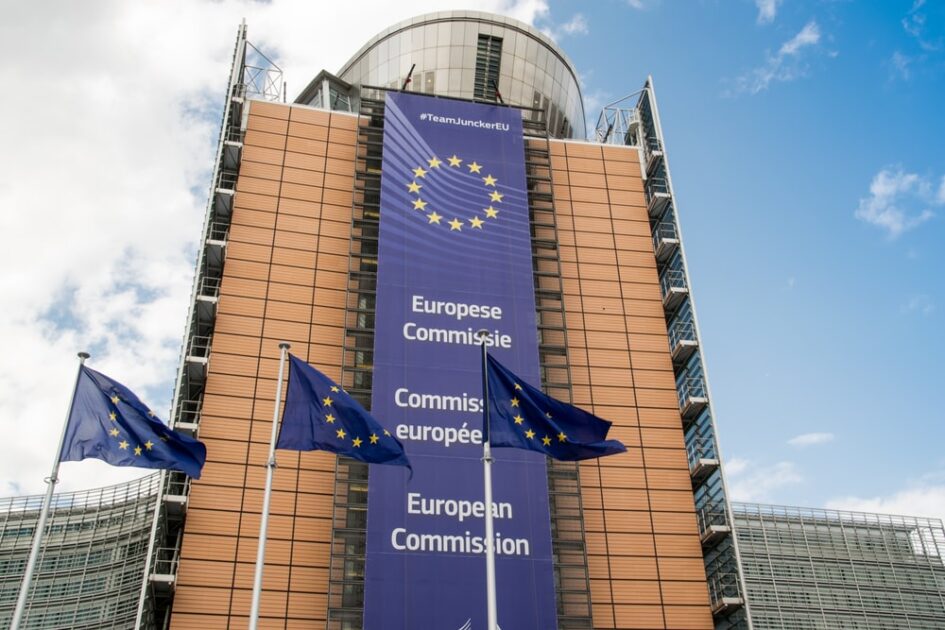EU Commission Proposes Reform of the EU Electricity Market Design to Boost Renewables

The EU Commission has proposed to reform the EU’s electricity market design to accelerate a surge in renewables and the phase-out of gas, make consumer bills less dependent on volatile fossil fuel prices, better protect consumers from future price spikes and potential market manipulation, and make the EU’s industry clean and more competitive.
The EU has had an efficient, well-integrated electricity market for over twenty years, allowing consumers to reap the economic benefits of a single energy market, ensuring security of supply and stimulating the decarbonisation process. The energy crisis spurred by Russia’s invasion of Ukraine has underlined the need to quickly adapt the electricity market to better support the green transition and offer energy consumers, both households and businesses, widespread access to affordable renewable and non-fossil electricity.
The proposed reform foresees revisions to several pieces of EU legislation – notably the Electricity Regulation, the Electricity Directive, and the REMIT Regulation. It introduces measures that incentivise longer term contracts with non-fossil power production and bring more clean flexible solutions into the system to compete with gas, such as demand response and storage. This will decrease the impact of fossil fuels on the consumer electricity bills, as well as ensure that the lower cost of renewables gets reflected in there. In addition, the proposed reform will boost open and fair competition in the European wholesale energy markets by enhancing market transparency and integrity.
Building a renewables-based energy system will not only be crucial to lower consumer bills, but also to ensure a sustainable and independent energy supply to the EU, in line with the European Green Deal and the REPowerEU Plan. This reform, which is part of the Green Deal Industrial Plan, will also allow the European industry to have access to a renewable, non-fossil and affordable power supply which is a key enabler of decarbonisation and the green transition. To reach our energy and climate targets, the deployment of renewables will need to triple by the end of this decade.
Protecting and empowering consumers
High and volatile prices, such as those seen in 2022 provoked by Russia’s energy war against the EU, have put an excessive burden on consumers. This proposal will allow consumers and suppliers to benefit from more price stability based on renewable and non-fossil energy technologies. Crucially, it will give consumers a wide choice of contracts and clearer information before signing contracts for them to have the option to lock in secure, long-term prices to avoid excessive risks and volatility. At the same time, they will still be able to choose to have dynamic pricing contracts to take advantage of price variability to use electricity when it is cheaper (e.g. to charge electric cars, or use heat pumps).
On top of expanding consumers’ choice, the reform further aims to foster price stability by reducing the risk of supplier failure. The proposal requires suppliers to manage their price risks at least to the extent of the volumes under fixed contracts, in order to be less exposed to price spikes and market volatility. It also obliges Member States to establish suppliers of last resort so that no consumer ends up without electricity.
See related article: EU Commission Approves €89.6 Million Hungarian Investment Aid to Samsung SDI’s EV Battery Plant
The protection of vulnerable consumers is also significantly enhanced. Under the proposed reform, Member States will protect vulnerable consumers in arrears from being disconnected. Also, it allows Member States to extend regulated retail prices to households and SMEs in case of a crisis.
Under the proposal, rules on sharing renewable energy are also being revamped. Consumers will be able to invest in wind or solar parks and sell excess rooftop solar electricity to neighbours, not just to their supplier. For example, tenants will be able to share surplus rooftop solar power with a neighbour.
To improve the flexibility of the power system, Member States will now be required to assess their needs, establish objectives to increase non-fossil flexibility, and will have the possibility to introduce new support schemes especially for demand response and storage. The reform also enables system operators to procure demand reduction at peak hours. Alongside this proposal, the Commission has also issued recommendations today to the Member States on the advancement of storage innovation, technologies, and capacities.
Enhancing energy costs’ predictability and stability to boost industrial competitiveness
Over the past year, many companies have been severely affected by excessively volatile energy prices. To enhance the competitiveness of EU industry and to reduce its exposure to volatile prices, the Commission is proposing to facilitate the deployment of more stable long-term contracts such as Power Purchase Agreements (PPAs) – through which companies establish their own direct supplies of energy and thereby can profit from more stable prices of renewable and non-fossil power production. To address the current barriers such as the credit risks of buyers, the reform obliges Member States to ensure the availability of market-based guarantees for PPAs.
In order to provide power producers with revenue stability and to shield industry from price volatility, all public support for new investments in infra-marginal and must-run renewable and non-fossil electricity generation will have to be in the form of two-way Contracts for Difference (CfDs), while Member States are obliged to channel excess revenues to consumers. In addition, the reform will boost liquidity of the markets for long term contracts that lock in future prices, so-called “forward contracts.” This will allow more suppliers and consumers to protect themselves against excessively volatile prices over longer periods of time.
There will also be new obligations to facilitate renewables integration into the system and enhance predictability for generation. These include transparency obligations for system operators as regards grid congestion, and trading deadlines closer to real time.
Finally, to ensure competitive markets and transparent price-setting, the Agency for the Cooperation of Energy Regulators (ACER) and national regulators will have enhanced ability to monitor energy market integrity and transparency. In particular, the updated Regulation on Wholesale Energy Market Integrity and Transparency (REMIT) will ensure better data quality as well as strengthen ACER’s role in investigations of potential market abuse cases of cross border nature. Overall, this will step up the protection of EU consumers and industry against any market abuse.












